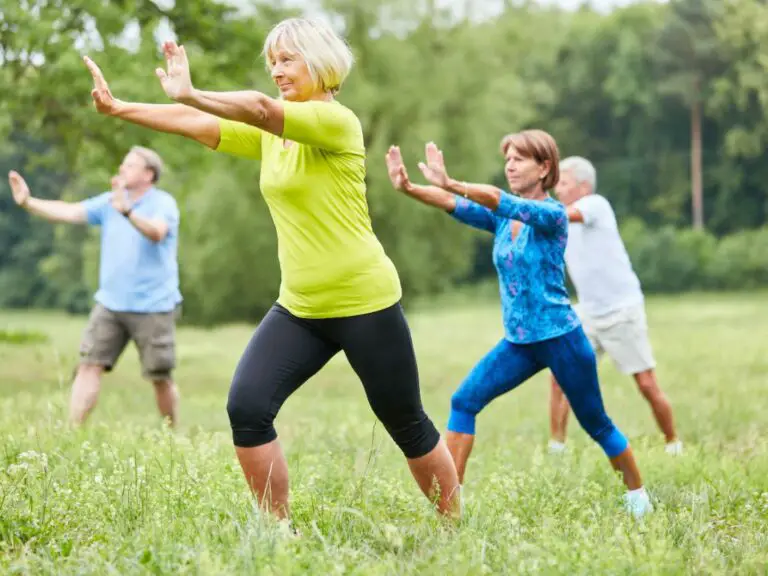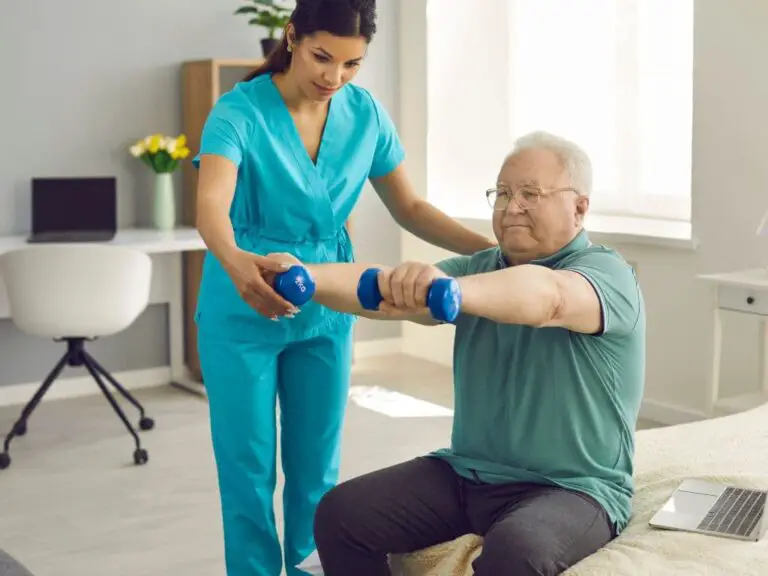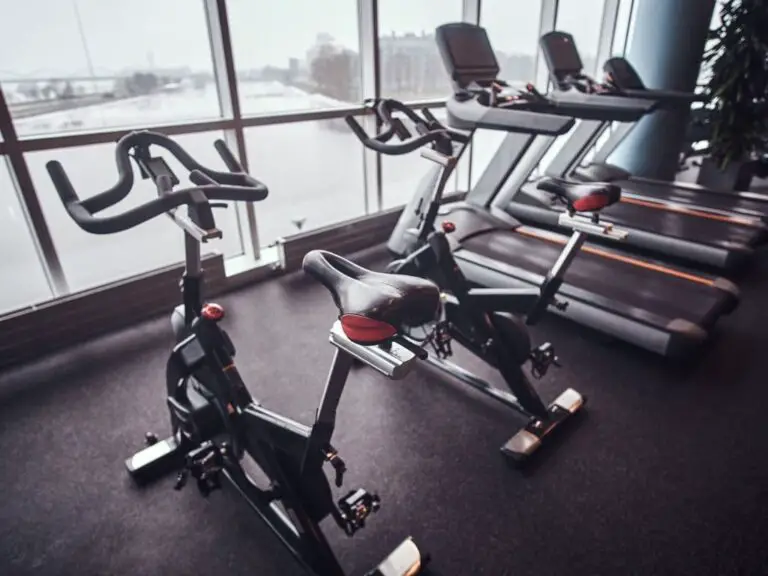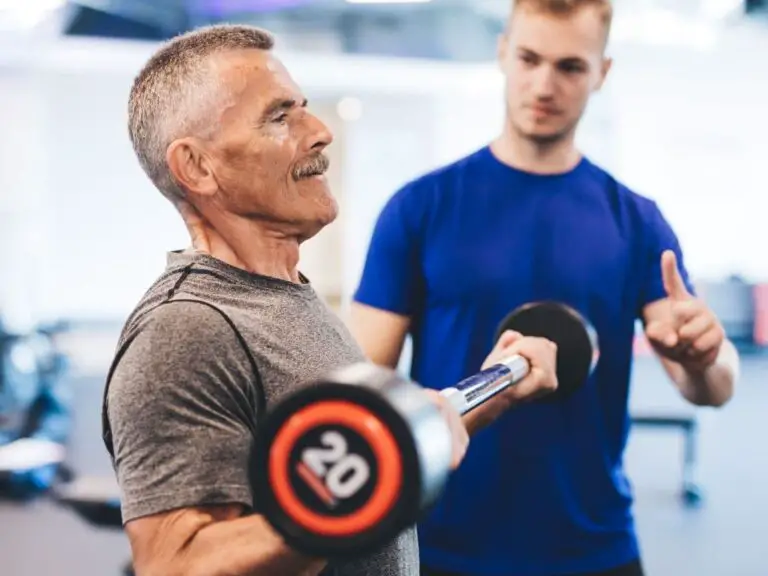Health-Promoting Activities for Seniors: Boosting Well-Being and Vitality
As people enter their golden years, maintaining health and vitality becomes increasingly important. Engaging in activities that promote physical, mental, and social well-being can help seniors stay active, energized, and independent for longer.
Healthy aging practices that focus on exercise, nutrition, mental stimulation, social connections, and preventative care allow older adults to make the most of their longevity.
Here is a summary of the best health-promoting activities for seniors.
| Category | Activities | Benefits |
|---|---|---|
| Physical Activity | Walking, swimming, cycling, dancing, yoga, Tai Chi | Improves cardiovascular health, strength, balance, flexibility, coordination, mood |
| Nutrition | Eating lean protein, fiber, fruits, vegetables, whole grains; staying hydrated | Maintains energy, muscle mass, digestive health; reduces risk of chronic diseases |
| Weight Management | Portion control, physical activity, healthy eating | Reduces obesity-related health risks; improves mobility, physical functioning |
| Mental Health | Social engagement, relaxation techniques, cognitive stimulation | Reduces stress and depression; improves mood, self-worth, focus |
| Social Engagement | Volunteering, clubs, classes, visiting friends and family | Reduces isolation and loneliness; provides mental stimulation |
| Fall Prevention | Exercise, home modifications, assistive devices | Maintains mobility and independence; enables active lifestyle |
| Stress Management | Deep breathing, meditation, yoga, Tai Chi | Lowers blood pressure, anxiety; builds resilience |
This article explores evidence-based ways for seniors to boost their health, quality of life, and sense of fulfillment.
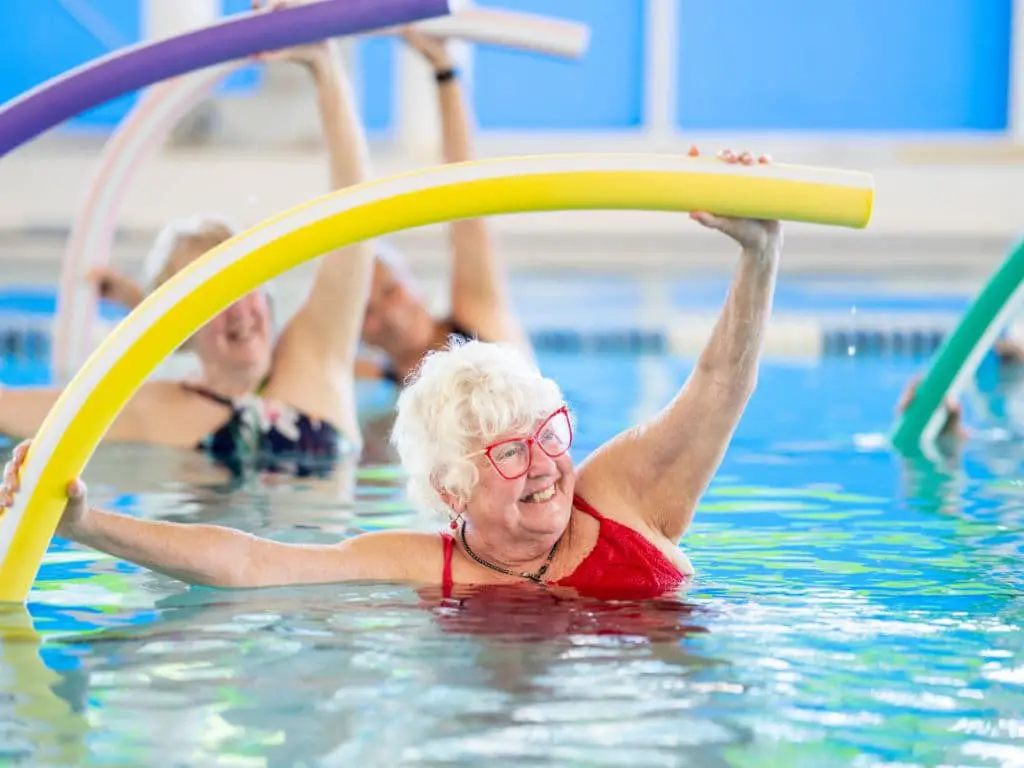
How Can Physical Activity Promote Health in Seniors?
Regular physical activity provides immense benefits for seniors’ health. Low-impact exercises like walking, swimming, cycling, dancing, yoga, and Tai Chi improve cardiovascular fitness, strength, flexibility, balance, and coordination in older adults. Studies show that seniors who engage in moderate exercise for 150 minutes per week have up to a 30% lower risk of falls compared to their more sedentary peers. Physical activity also helps prevent chronic diseases like diabetes, heart disease, and osteoporosis that become more common in old age. Exercise releases endorphins that can elevate mood and reduce anxiety and depression. Mobility and independence are maintained when seniors stay active. By promoting healthy aging on physical, mental, and social levels, regular exercise allows seniors to enjoy their later years to the fullest.
The role of exercise only becomes more vital as people enter advanced age. Research indicates that ongoing physical activity helps seniors maintain their functional abilities and prevents major mobility disability. Even light physical activity, like leisurely walking, is associated with higher quality of life scores and lower healthcare costs in seniors over 85. Regular exercise also lowers older adults’ risk of cognitive decline and dementia. The longevity benefits are clear: studies show that seniors who engage in moderate to vigorous exercise tend to live longer than their inactive peers. For aging populations, activities like brisk walking, water aerobics, yoga, and gardening can make their extra years more rewarding by preserving physical and mental capacities. Exercise allows seniors to stay independent, engaged, and healthy.
What Nutrients are Essential for Seniors’ Health?
Eating a nutritious diet is key for maintaining wellness in old age. Seniors have different nutritional needs than younger populations. As metabolism slows and activity levels change, requirements for certain nutrients increase while other needs decrease. Getting adequate protein, fiber, calcium, vitamin D, antioxidants, and water supports healthy aging. Lean protein sources like fish, poultry, low-fat dairy, beans, and nuts provide essential amino acids for preserving muscle mass as people get older. Fiber from fruits, vegetables, whole grains, and legumes prevents constipation and supports digestive health. Calcium and vitamin D keep bones strong and help prevent osteoporosis and fractures. Antioxidants from colorful fruits and vegetables protect cells from damage. Staying hydrated is crucial too, as seniors are more susceptible to dehydration. Following dietary guidelines for older adults ensures adequate intake of nutrients that sustain energy, independence, and resilience.
Healthy eating habits also reduce seniors’ risk of chronic diseases. Diets high in fiber, vitamins, minerals, and antioxidants lower chances of developing heart disease, diabetes, and even certain cancers. Fruits and vegetables are especially protective – seniors who eat 5 or more servings per day have roughly a 25% lower risk of death from any cause. Proper nutrition helps seniors maintain a healthy body weight as well. Obesity puts older adults at greater risk for disabilities and impaired mobility. By eating nutritious foods in appropriate portion sizes, seniors can prevent unwanted weight gain and associated health risks. Overall, healthy eating allows seniors to feel their best and reduces risk factors that could otherwise diminish quality of life.
How Can Seniors Manage Their Weight Effectively?
Carrying excess weight puts seniors at higher risk for a number of age-related health problems. Obesity exacerbates conditions like heart disease, diabetes, arthritis, and sleep apnea that already become more common in old age. Excess weight also interferes with mobility, physical functioning, and independence. Strategies for healthy weight management include eating nourishing foods in proper portion sizes, staying adequately hydrated, and getting regular physical activity. Making dietary changes incrementally and finding enjoyable forms of exercise improves seniors’ adherence to weight management plans. Even losing just 5-10% of body weight can produce meaningful health benefits for obese seniors.
Successfully maintaining a healthy weight allows seniors to reap considerable rewards. Shedding excess pounds reduces cardiovascular and metabolic health risks and may decrease seniors’ need for certain medications. Mobility tends to improve along with balance, flexibility, and stamina. This lowers seniors’ risk of debilitating falls and enables them to stay active and independent for longer. Weight management boosts physical and mental health, energy levels, self-esteem, and body image. Seniors who adopt healthy lifestyle habits for weight control often report feeling more satisfied, optimisitic, and empowered in their later years. By proactively managing their weight, seniors can extend their healthy lifespan and make the most of aging with vitality.
How Can Seniors Improve Their Mental Health?
Mental well-being is a key component of healthy aging. Seniors face unique stressors like retirement, loss of loved ones, and declining health that can negatively impact mental health. Staying socially engaged, learning relaxation techniques, and keeping the mind stimulated helps seniors maintain positive psychological health. Socializing reduces loneliness and boosts mood and self-worth. Relaxation practices like deep breathing, meditation, and yoga alleviate anxiety and depression. Engaging in cognitive games, reading, and taking educational courses allows seniors to exercise their minds. Adopting these practices equips seniors to cope with life’s challenges in constructive ways.
Preserving mental wellness enables seniors to thrive in their later years. Good mental health allows seniors to stay adaptable and resilient when facing age-related changes. Having an optimistic outlook and purposeful activities to look forward to each day gives seniors’ lives meaning and fulfillment. Relaxation techniques help seniors manage stress and discomfort from chronic ailments. Strong cognitive functioning preserves independence by enabling seniors to continue performing daily tasks unassisted. Overall, focusing on emotional and psychological health provides benefits across many dimensions for seniors. A holistic approach to mental wellness promotes life satisfaction and quality of life during aging.
How Can Social Engagement Benefit Seniors?
Social connection plays a vital role in seniors’ health and happiness. Interacting with others provides mental stimulation and reduces social isolation and loneliness, which are major risk factors for cognitive decline and even dementia. Seniors can engage with others through many meaningful activities. Volunteering allows seniors to help the community while meeting new people. Joining social clubs, classes, or senior centers based on interests fosters fulfilling relationships. Spending time with family and friends, whether in-person or by phone or video chat, maintains bonds that provide comfort and familiarity. Starting new hobbies and attending religious services or cultural events expands seniors’ social circles. Through regular social interaction and community participation, seniors reap mental, emotional, and physical health benefits that enhance well-being.
Research confirms that staying socially engaged helps seniors live fuller, longer lives. Higher levels of social participation are linked to better physical functioning and lower risk of disabilities in older adults. Seniors with strong social ties exhibit better cognitive functioning and memory in aging. Loneliness is associated with higher blood pressure, depression, and increased mortality risk in the elderly. Social connectedness even has protective effects against dementia. By combating isolation and boredom, social engagement allows seniors’ golden years to be vibrant and purposeful. Nourishing relationships and community involvement provide joy and preserve seniors’ quality of life as they age.
What are the Best Practices for Fall Prevention in Seniors?
Falls threaten seniors’ mobility, independence, and quality of life. About 1 in 4 older adults fall each year, often resulting in serious injury or disability. Evidence-based strategies for reducing fall risk include regular exercise to improve strength and balance, having vision checked and updating prescriptions annually, and modifying living spaces to reduce tripping hazards. Simple home modifications like installing grab bars in bathrooms, placing railings on both sides of stairways, removing rugs, improving lighting, and removing clutter help make seniors’ living environment safer. Adhering to proper medication management also lessens dizziness that can lead to falls. Health professionals can assess seniors’ risk and advise assistive devices like canes or walkers if needed. Falls are not an inevitable part of aging – proactive prevention enables seniors to live vigorously and confidently.
Avoiding falls and fall-related injuries helps seniors maintain active lifestyles in their golden years. Seniors who fall, especially those with underlying frailty, are at higher risk of being admitted to a nursing home. Continuing to live independently is a primary goal for most seniors as they age. By taking steps to prevent falls, older adults can continue performing daily activities unassisted and living comfortably in their own homes for longer. Fall prevention also fosters seniors’ confidence in their mobility and physical abilities. Knowing they have taken appropriate precautions against falls empowers seniors to enjoy regular exercise, running errands, and visiting loved ones without undue worry or limitations. Proactive fall prevention gives seniors freedom, safety, and independence.
How Can Stress Management Improve Seniors’ Health?
Managing stress is an important component of healthy aging. Learning to relax and cope with life’s challenges prevents anxiety and depression, which affect up to 15% of seniors. Practices like deep breathing, progressive muscle relaxation, meditation, yoga, Tai Chi, reflective journaling, or music therapy induce the “relaxation response,” lowering blood pressure, heart rate, and stress hormones. Regular practice of these techniques builds seniors’ resilience and sense of well-being. Mindfulness meditation strengthens cognitive skills like focus and memory that tend to decline with age. The social interaction and gentle physical activity involved in yoga and Tai Chi classes provide additional anti-stress benefits. Adopting stress management techniques allows seniors to enjoy more positive emotions and gain perspective on life’s stressors.
By alleviating chronic stress, seniors can achieve better physical and mental health. Stress contributes to onset and progression of age-related diseases like Alzheimer’s and osteoporosis. It also exacerbates pain and insomnia which commonly affect seniors. Effective stress management protects brain cells and may help maintain cognitive abilities. Lowering stress and anxiety enables seniors to focus their time and energy on health-promoting and fulfilling activities rather than worrying excessively. Seniors who have tools to manage stress report higher life satisfaction and optimism. Furthermore, relaxation practices reduce seniors’ need for sleep and anxiety medications, improving quality of life. Overall, managing stress and difficult emotions is key for seniors to live purposefully and make the most of their vitality as they age.
What are the Best Activities for Healthy Aging?
Seniors can take proactive steps to preserve well-being and prolong independence into their golden years. Regular physical activity keeps seniors’ bodies and minds sharp. Weight management reduces risk factors for chronic disease. A nutritious diet provides energy and supports healthy organ function. Social engagement counters isolation and cognitive decline. Relaxation practices build resilience to life’s difficulties. Preventing falls helps seniors remain safely active and mobile. Together, these healthy aging strategies sustain seniors’ vitality, happiness, and independence for years to come.
Committing to exercise, healthy eating, stress management, cognitive stimulation, and social interaction allows seniors to thrive through old age. Seniors who adopt wellness routines are rewarded with improved strength and mobility, optimism and life satisfaction, self-confidence, and sharper thinking skills. By focusing on modifiable behaviors like nutrition and physical activity, seniors can compress morbidity into a smaller portion of their extended lifespan. A holistic approach helps seniors continue pursuing their passions while maintaining health and independence for decades to come. Proactively investing in wellness practices allows seniors to make the most of their golden years with vitality, purpose, and joie de vivre.
Frequently Asked Questions
-
What activities are highly recommended for health promotion?
Brisk walking, biking, swimming and most other sports are all examples of activities that can be done with moderate intensity for young people. You can do these activities as part of your transportation, exercise, or physical education.
-
How do 70 year olds make new friends?
Participate in scheduled social activities and groups at a senior center. You can join a group that focuses on an activity or topic you are interested in, like a card game or book club. You can take a class. Senior citizens may be eligible for discounts at local universities or to free-of-charge audits of classes.
-
WHO six building blocks health systems strengthening?
The World Health Organization (WHO), in recognition of the need to strengthen the health system, has developed a framework for health systems that defines health systems as six components. These include health worker, service delivery, financial management, funding, vaccinations, technologies and financing.
-
What does a healthy home mean?
The century-old idea of “Healthy Homes”, which promotes healthy, safe and decent housing, is used to prevent disease and injury. A lot of scientific evidence is emerging linking substandard housing to health issues such as asthma and lead poisoning.
-
What are the benefits given to our senior citizens in the Philippines?
Senior citizens can enjoy discounts on food and utilities as well as priority lanes for public and private services. They also have the option to be exempt from certain obligations or get their meals free of charge.
-
What happens to a woman’s body at 70?
What’s happening. As we age, our bones shrink in size, density and strength, making them less susceptible to breaking. Your height might drop. Your coordination, stability, balance, and strength can be affected by muscle weakness, endurance, and flexibility.
-
What are the 6 stages of the life course approach?
Below are six stages in the life cycle: preterm and fetal development (ages 18 to 35), childhood and adulthood (36 to 65) and older life (ages 65 and over).
-
What are the health programs in barangay?
There are two main CHW programs in the Philippines. They are Barangay Health Workers, (BHWs), and Barangay Nutrition Scholars, (BNSs). These groups are made up of low-paid or volunteer workers that refer or deliver patients to local primary care services.
-
What are the five moral principles?
Moral Principles: The principles of autonomy, justice and beneficence as well as nonmaleficence and nonmaleficence are all absolute truths. You can gain a greater understanding of conflicting issues by exploring these principles.
-
What are health education activities?
Whitehead (2004) defined health education as: “An activity which seeks to inform an individual about the nature and causes for illness and the personal risk that is associated with his/her lifestyle.
-
What are the 17 public health interventions?
These 17 interventions include surveillance, dis-ease and other health investigation as well as outreach, screening and case finding. Refer and follow up, case management and delegated functions are also available.
-
How do you stop seniors from getting bored?
Do you enjoy board games? This indoor activity is great for seniors and anyone else. You can play classics such as Scrabble and Yahtzee as well as chess, dominos, and chess, as well as newer games like Qwirkle or Apples to Apples.
-
Which activity is a goal of the World health Organization WHO )?
WHO is a global organization that promotes health and serves the most vulnerable. We aim to make sure that one billion more people are covered by universal health care, protect another billion from emergencies and improve the health and wellbeing of another billion.
-
What are the 7 principles of health?
In this paper, we present a case-based approach that focuses on seven principles at the mid-level (non-maleficence. beneficence. Health maximisation. Efficiency. Respect for autonomy. Justice.
-
How can you promote health across your lifespan?
The National Center for Chronic Disease Prevention and Health Promotion at the CDC works to promote healthy communities that have access to nutritious food, exercise, and public places where there is no smoking.



